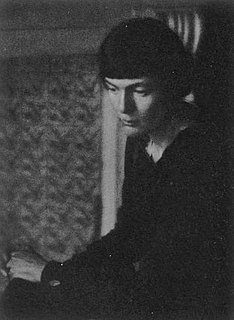A Quote by Lauren DeStefano
Once upon a time there were two parents, two children, and a brick house with lilies in the yard. The parents died, the lilies wilted. One child disappeared. Then the other." Pg 225
Related Quotes
When you use the language of 'fact checking' to talk about a film, I think you're sort of fundamentally misunderstanding how art works. You don't fact check Monet's 'Water Lilies.' That's not what water lilies look like; that's what the sensation of experiencing water lilies feel like. That's the goal of the piece.
A child is not a Christian child, not a Muslim child, but a child of Christian parents or a child of Muslim parents. This latter nomenclature, by the way, would be an excellent piece of consciousness-raising for the children themselves. A child who is told she is a 'child of Muslim parents' will immediately realize that religion is something for her to choose -or reject- when she becomes old enough to do so.
Modern children were considerably less innocent than parents and the larger society supposed, and postmodern children are less competent than their parents and the society as a whole would like to believe. . . . The perception of childhood competence has shifted much of the responsibility for child protection and security from parents and society to children themselves.


































